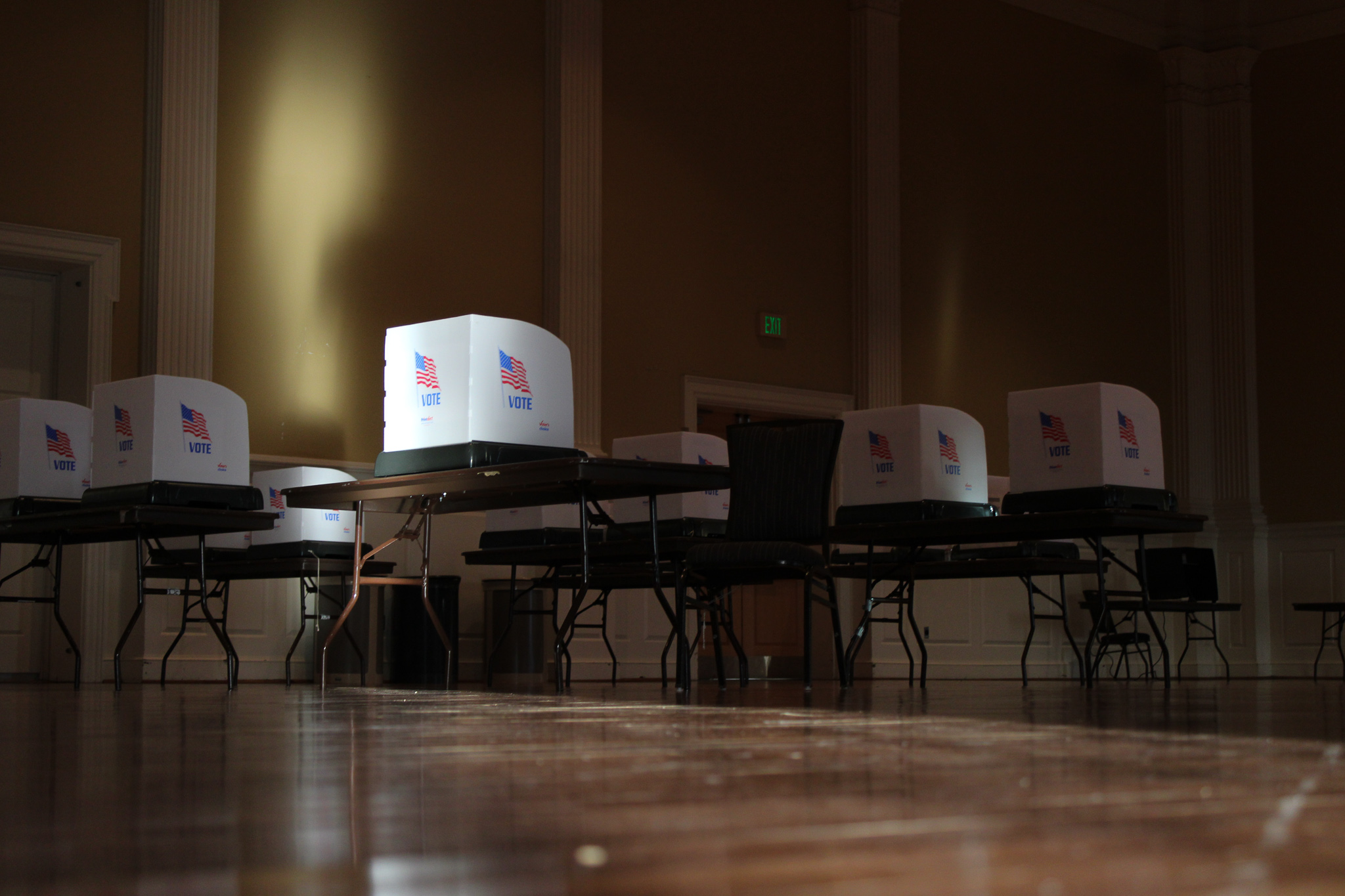Views expressed in opinion columns are the author’s own.
When the College Park City Council took a recent vote to hold this year’s city elections for mayor and council members, it made a huge mistake. Council members opted to replace all previous Election Day polling locations, including the ones at Stamp Student Union and Ritchie Coliseum, with just one, at the College Park Community Center.
The community center is both far from University of Maryland student facilities and the commercial areas of College Park students frequent. Plus, the nearly 30-minute walk in the November cold from some parts of the campus isn’t exactly leisurely.
Students itching to participate in the electoral process must be met with systems that make participation as accessible as possible. College Park’s 2023 city elections must have a polling place on this university’s campus.
College Park undeniably has a population of permanent residents with their own interests who deserve representation. But this university is heavily a part of this city’s identity. Many local businesses are designed to cater specifically to student’s needs. And the university is by far College Park’s largest employer, accounting for a majority of all city employment.
In fact, this university’s enrollment count of more than 40,000 students exceeds the College Park population of approximately 35,110 people. Given the university’s presence in the community, it is no surprise local officials’ decisions during the time we spend on the campus greatly impact students.
Just a few months ago, the council considered creating a special district in College Park covering areas with higher student populations. That district would experience higher tax rates and increased policing — two things many students, including myself, wouldn’t be thrilled about.
Removing all campus polling locations also undermines the university administration’s efforts to encourage students to vote. Partnering with Terps Vote ahead of the 2022 midterm elections, this university shared voting resources with students through numerous avenues.
From a campuswide email to a pop-up table I saw while walking into the South Campus Dining Hall, this university has been making a concerted effort to help students register to vote, learn about candidates and cast our ballots.
But these initiatives are diametrically opposed to the city council’s decision to remove on-campus polling locations. Council members ought to keep the university’s efforts in mind, given how intrinsic student life is to the city.
It is every eligible voter’s democratic right to vote where they live — which is why college students are legally able to register where they attend school in the first place. A polling place on the campus makes it much more accessible for this university’s students to exercise this right.
Failing to maintain a single polling location on the campus disincentivizes students from participating in elections. Student-majority areas already see turnout levels below 10 percent. College Park should be doing all it can to increase that figure, not the exact opposite.
The simple reality is students find polling places on the campus more convenient. When students can vote somewhere they frequent on a daily basis or at the very least, pass through the vicinity of, it follows that more students will do so.
More participation increases students’ influence. This university’s students would have considerable political power — both in the short-term and the long-term — if we voted in higher numbers.
Students at this university don’t just vote in College Park’s local elections — they also run. After many students’ attempted bids, a doctoral student, Marcus Afzali, was elected as council member in 2009. It would clearly be difficult for anyone to argue students at this university aren’t civically engaged.
But having to vote at the College Park Community Center stifles that enthusiasm.
Students should also have a larger say in who represents us on the city council. But just recently, the council adopted redistricting maps that dilute the concentration of student voters into several districts. To truly equip students with political power, we must counteract the effect of these maps by increasing the total number of student voters.
Looking past the present, incentivizing students to participate in elections while we’re young will also affect our voting habits for the rest of our lives. In fact, people who consistently vote in the first three elections for which they’re eligible are more likely to keep on doing so. The inverse is true, too.
Because our council members represent a city with a significant student population, they’re morally obligated to invest in America’s future political engagement. Students eventually graduate and go on to live in communities across the country, carrying with them the habits they developed while attending this university.
Thankfully, it’s not too late for the city council to reverse its decision to remove all campus polling locations. It shouldn’t spend any more time signaling that students’ voices don’t count — because we know they do.
Dhruvak Mirani is a freshman computer science and government and politics major. Mirani can be reached at contact@dhruvak.com.



